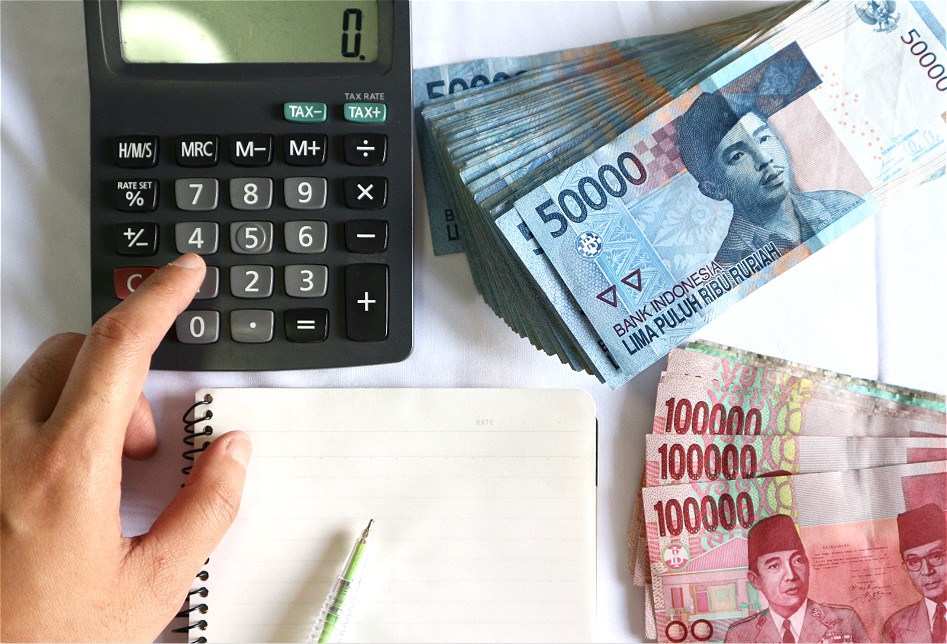Alodokter wants to be more than just Indonesia’s leading healthcare information website. With the US$9 million investment that it clinched earlier this month, it can ramp up to its goal of becoming Indonesians’ one-stop healthcare app.
Founded in 2014 by its CEO Nathanael Faibis, Alodokter publishes information about common ailments, diseases, drugs and general well-being in Bahasa Indonesia. Registered users can ask questions on its website or via its AI-supported chat app, which are then answered by Alodokter’s team of doctors.
The startup wants to develop its app into a one-stop personalised health manager, through which users can chat with doctors, book offline medical services, manage their medical records and keep track on their lifestyle – all in real-time.
Business research and consulting group Frost & Sullivan forecasts that healthcare spending (public and private) in Indonesia will reach US$60.6 billion in 2018, more than double from 2017. Factors driving such spending are a growing middle class and their demand for quality healthcare services, as well as an increase in lifestyle-related diseases such as diabetes, heart disease and cancer.
Faibis stressed that Alodokter does not want to undermine the doctor’s role: “We are not trying to replace a consultation with a doctor. No health information can do that.”
“Our objective is to give our users the right information they need to take the right decision for their health,” he has also said.
Improving healthcare accessibility
Demand for healthcare apps such as Alodokter, MeetDoctor, KlikDokter and TanyaDok has been strong and will continue to grow in Indonesia, which has over 260 million in population.
One key factor is that the country, the world’s fourth most populous, has a severe shortage of doctors. According to the World Health Organization, as at 2012, Indonesia had a ratio of 2.1 doctors per 10,000 patients – far below the recommended 1:600 doctor-patient ratio.
The statistic, which is the latest available, may be from years back, but the situation on the ground has not changed much. Many Indonesians also tend to avoid or delay medical attention due to lack of knowledge, time or, in the case of the low-income and rural residents, affordability and access to healthcare resources.
Many of these constraints have been circumvented by the rapid growth in Indonesia’s internet adoption and social media platforms over the past decade.
Most people are “unwilling to battle traffic for health consultations that do not necessitate therapy or a medical procedure”, or know doctors “who can be contacted by phone”, according to MeetDoctor’s Marketing Manager Fransiscus Martinus. As such, more Indonesians seek health solutions online and various doctors use their social media accounts – blogs and Twitter – to share health tips for free.
Disrupting credibly
Alodokter says that every month, its website attracts over 16 million active users and its chat app is used by over 250,000 users to interact with more than 350 doctors. Users are not charged, for now. The startup gets its revenue from advertising by health-related companies such as insurers, hospitals and appliance makers.
Faibis, a Frenchman, noted that as internet access grew, Indonesians were going online to get health information, “but there was no reliable source of information in Bahasa Indonesia”.
To this end, he set up Alodokter, positioned as a comprehensive body of scientifically accurate, easy-to-understand healthcare information for Indonesians of all ages. Its content is written by medical journalists, edited by doctors and updated regularly.
Faibis is no newbie to the disruption game. From 2010 to 2012, he worked in France, Kenya and Morocco as a project manager for Sanisphere, a pharmaceutical market research firm. In 2012, he joined Lazada and, as its head of production and user experience for Southeast Asia, helped to launch the e-commerce firm. In early 2013, Faibis re-joined Sanisphere in Jakarta as its Indonesia country head and global head of data management. He launched Alodokter a year later.
His pharmaceutical research experience in emerging markets made him see “there were big needs in the markets in Southeast Asia for better medical online services”, Faibis said, while the one-year stint at Lazada “taught me that no objective is too big, you can build very big things if you do it the right way”.
Heavyweight backers
Just three years on, Alodokter’s profile has surged within the Indonesian digital healthcare space. National news media such as Antara and Tempo reference Alodokter in their coverage on dengue fever, tetanus and hypertension.
“We want our app to be on top of the mind of our patients when they have health-related issues," Faibis said in a statement. "By managing so much information on patients, doctors and service providers, we are gradually building a much more efficient solution than traditional methods to find the right solution for patients.”
So far, while seen as a leading online authority on healthcare information, Alodokter has not had much else to differentiate itself from its peers. For example, KlikDokter also runs live-chat services based on different medical conditions. Practo, which is available in Bahasa Indonesia and English (useful for expatriates), enables users to book appointments online with doctors from various specializations in six cities.
But throwing new credence to Alodokter are its latest investors: Softbank Ventures Korea, a subsidiary of Japanese IT and telco giant Softbank that led the latest Series B funding round, and FengHe Group, a Chinese investment firm co-founded and led by former Alibaba Group CTO John Wu. The Alodokter deal marks Softbank Ventures Korea’s second investment in Indonesia since Tokopedia, one of the country’s largest online marketplaces today. Existing Alodokter investors include US venture capital firms Golden Gate Ventures and 500 Startups.
Alodokter also runs a similar healthcare information website customised for users in Thailand called Pobpad, as part of its regional expansion plans. Daniel Stan, formerly a senior executive with Lazada and Rocket Internet (which founded Lazada), joined Alodokter in 2016 and now heads Pobpad in Thailand.















